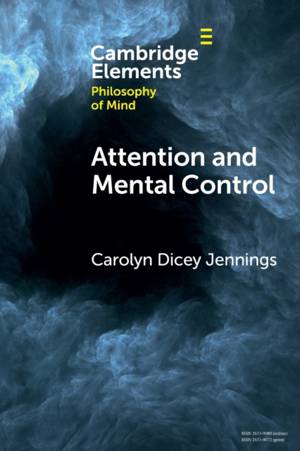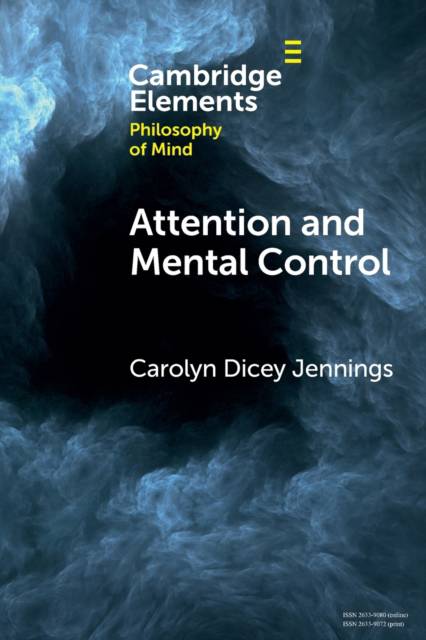
- Afhalen na 1 uur in een winkel met voorraad
- Gratis thuislevering in België vanaf € 30
- Ruim aanbod met 7 miljoen producten
- Afhalen na 1 uur in een winkel met voorraad
- Gratis thuislevering in België vanaf € 30
- Ruim aanbod met 7 miljoen producten
Zoeken
Omschrijving
Mental control refers to the ability to control our own minds. Its primary expression, attention has become a popular topic for philosophers in the past few decades, generating the need for a primer on the concept. It is related to self-control, which typically refers to the maintenance of preferred behavior in the face of temptation. While a distinct concept, criticisms of self-control can also be applied to mental control, such as that it implies the existence of an unscientific homunculus-like agent or is not a natural kind. Yet, as this Element suggests, a scientifically-grounded account of mental control remains possible. The Element is organized into five main sections, which cover the concept of mental control, the relationship between mental control and attention, the phenomena of meditation and mind-wandering, attention deficit hyperactivity disorder, and emergence-based accounts of mental control, including an original account by the author.
Specificaties
Betrokkenen
- Auteur(s):
- Uitgeverij:
Inhoud
- Aantal bladzijden:
- 82
- Taal:
- Engels
- Reeks:
Eigenschappen
- Productcode (EAN):
- 9781108987066
- Verschijningsdatum:
- 8/12/2022
- Uitvoering:
- Paperback
- Formaat:
- Trade paperback (VS)
- Afmetingen:
- 152 mm x 229 mm
- Gewicht:
- 122 g

Alleen bij Standaard Boekhandel
+ 66 punten op je klantenkaart van Standaard Boekhandel
Beoordelingen
We publiceren alleen reviews die voldoen aan de voorwaarden voor reviews. Bekijk onze voorwaarden voor reviews.








